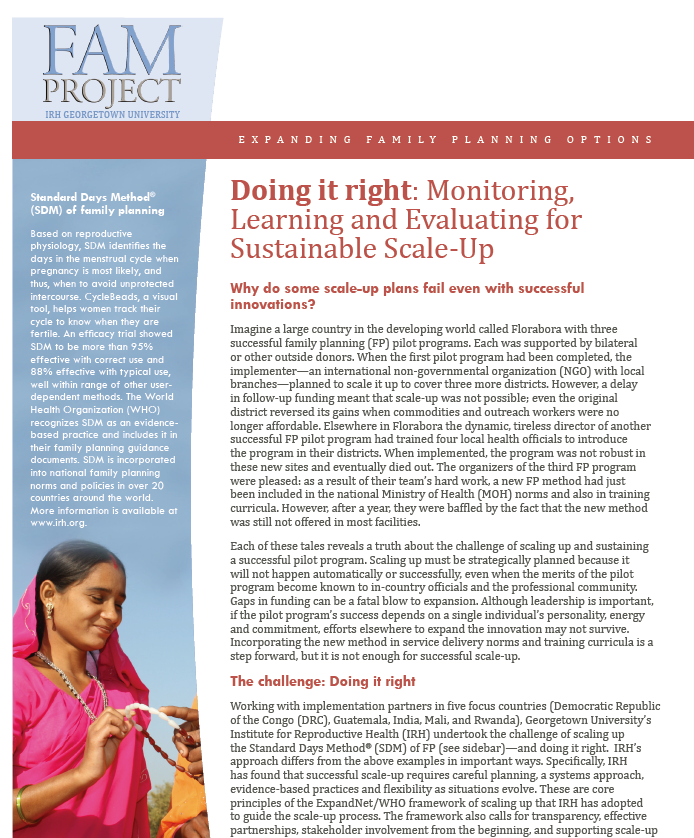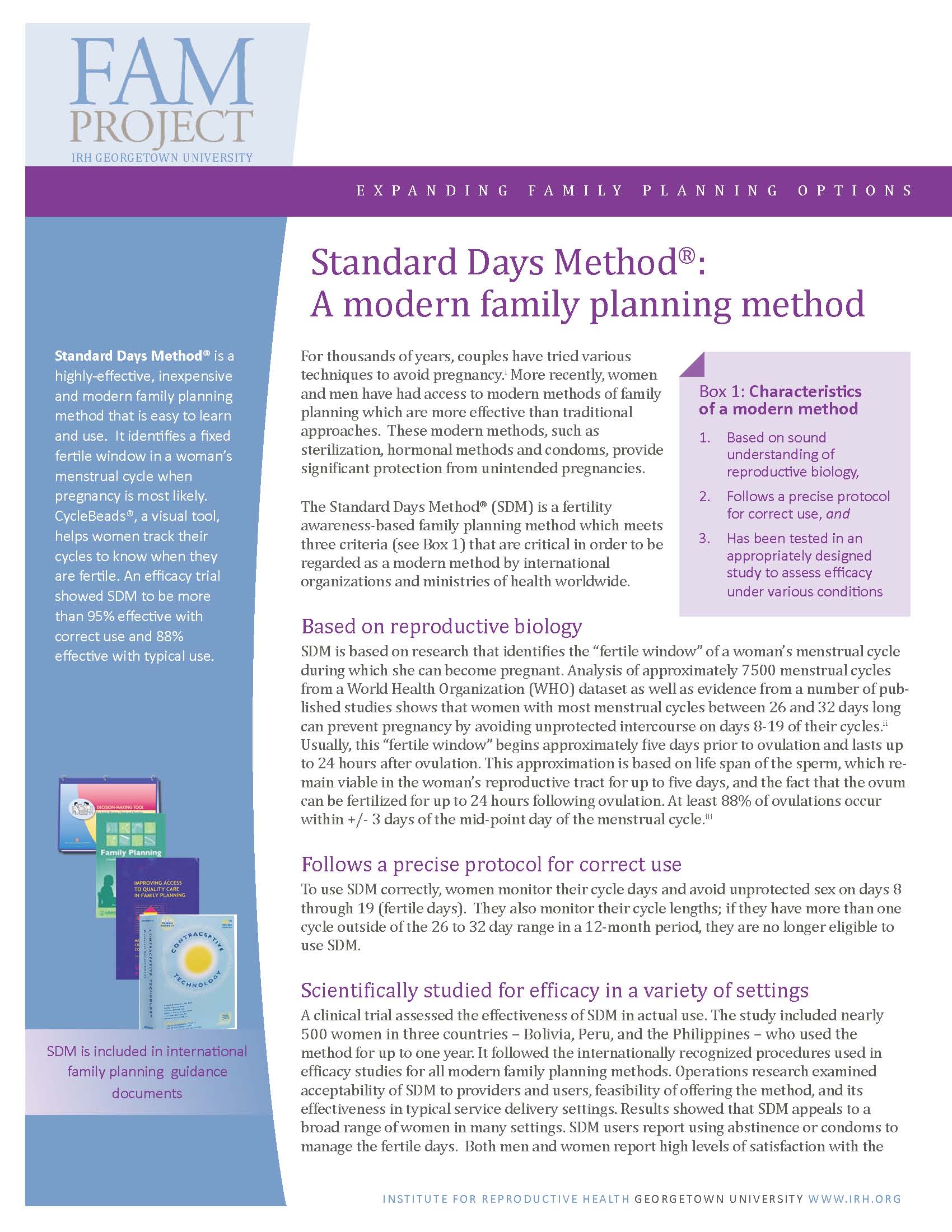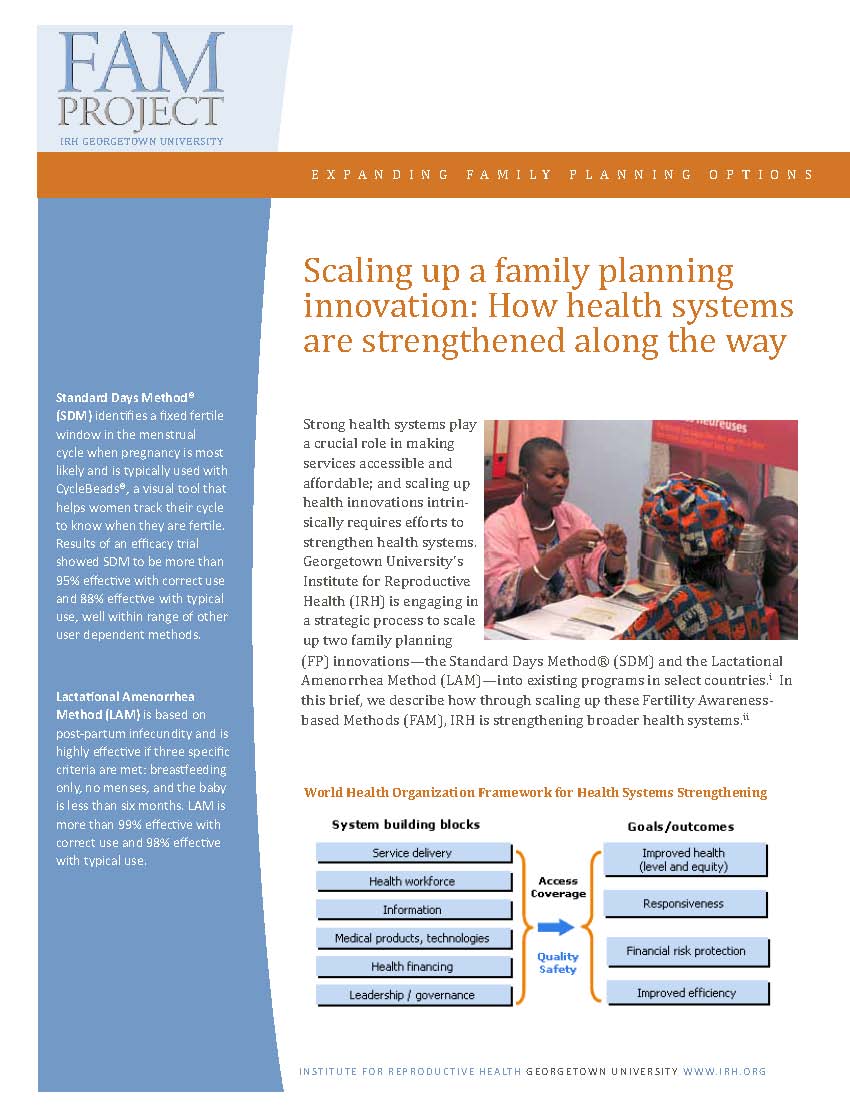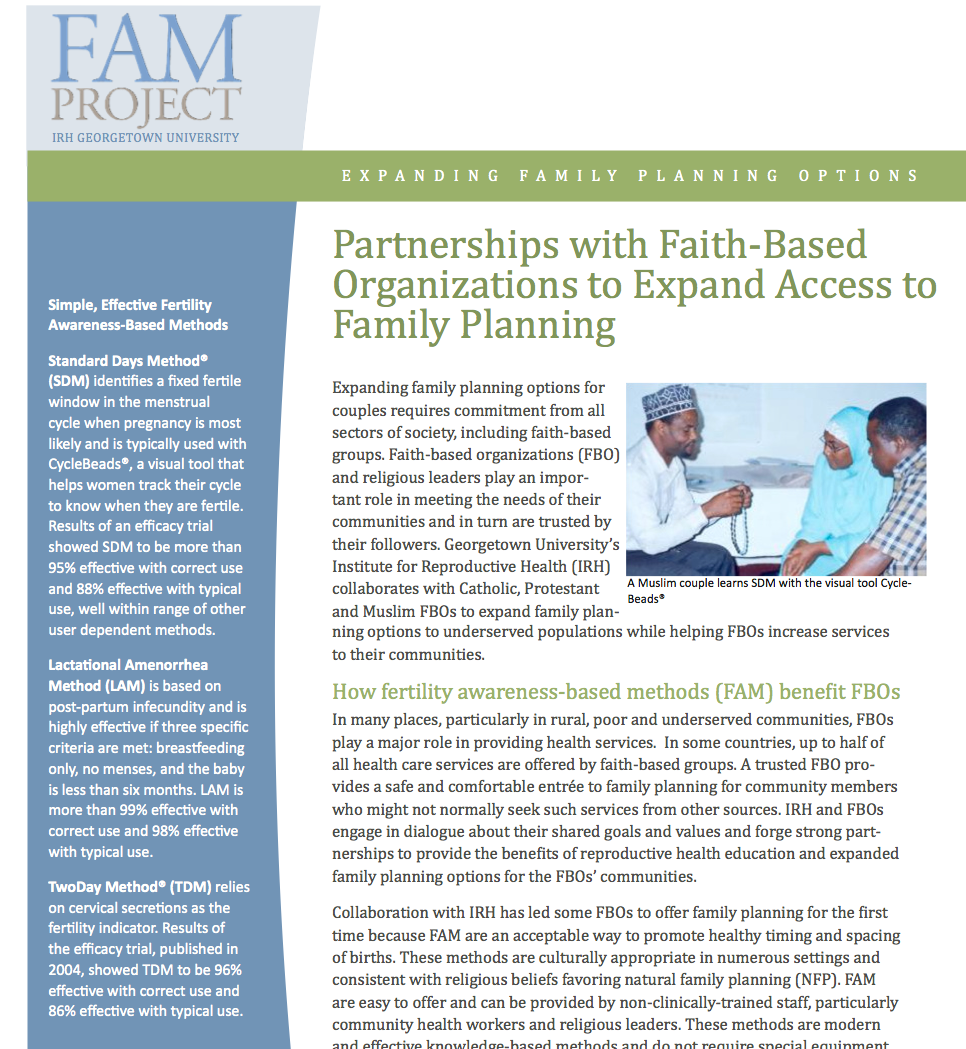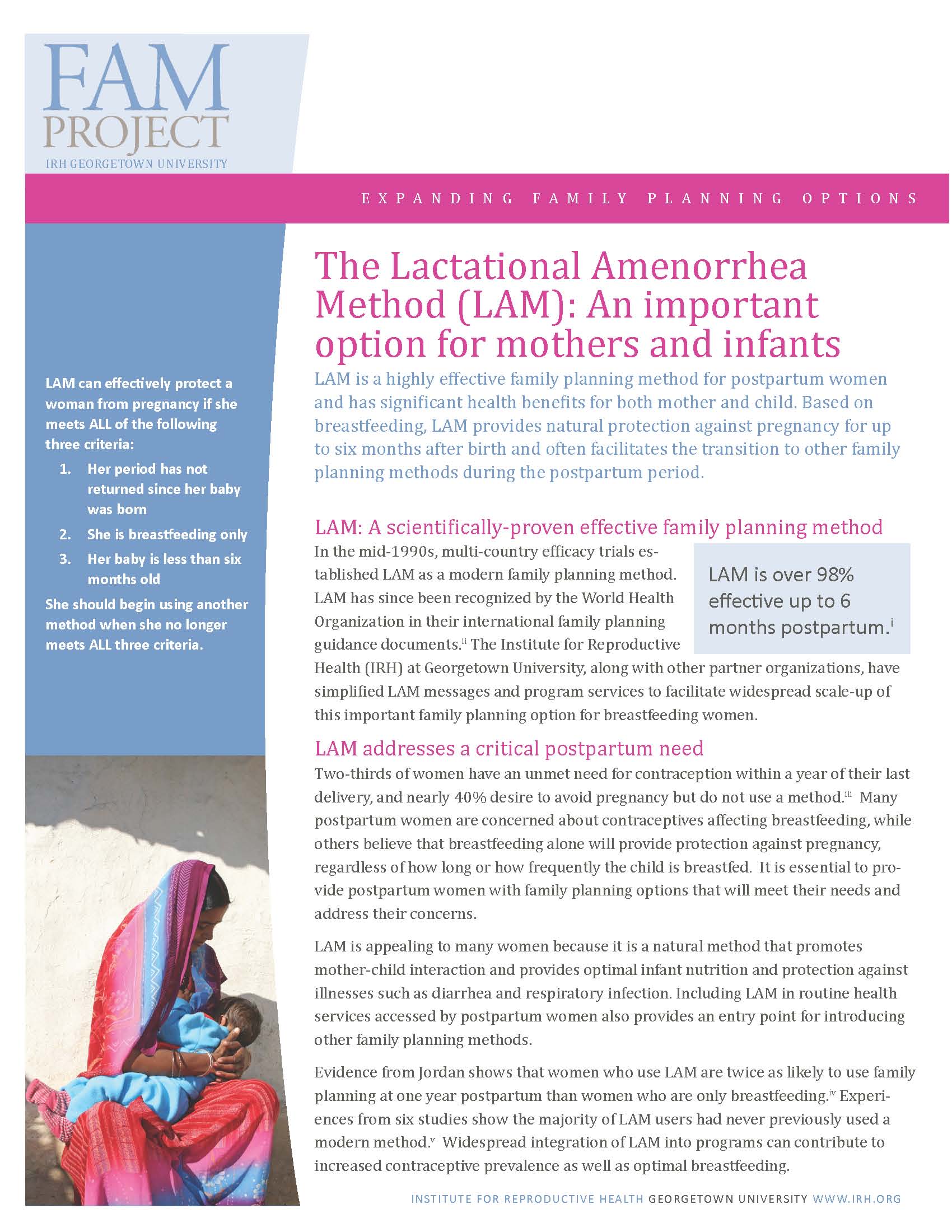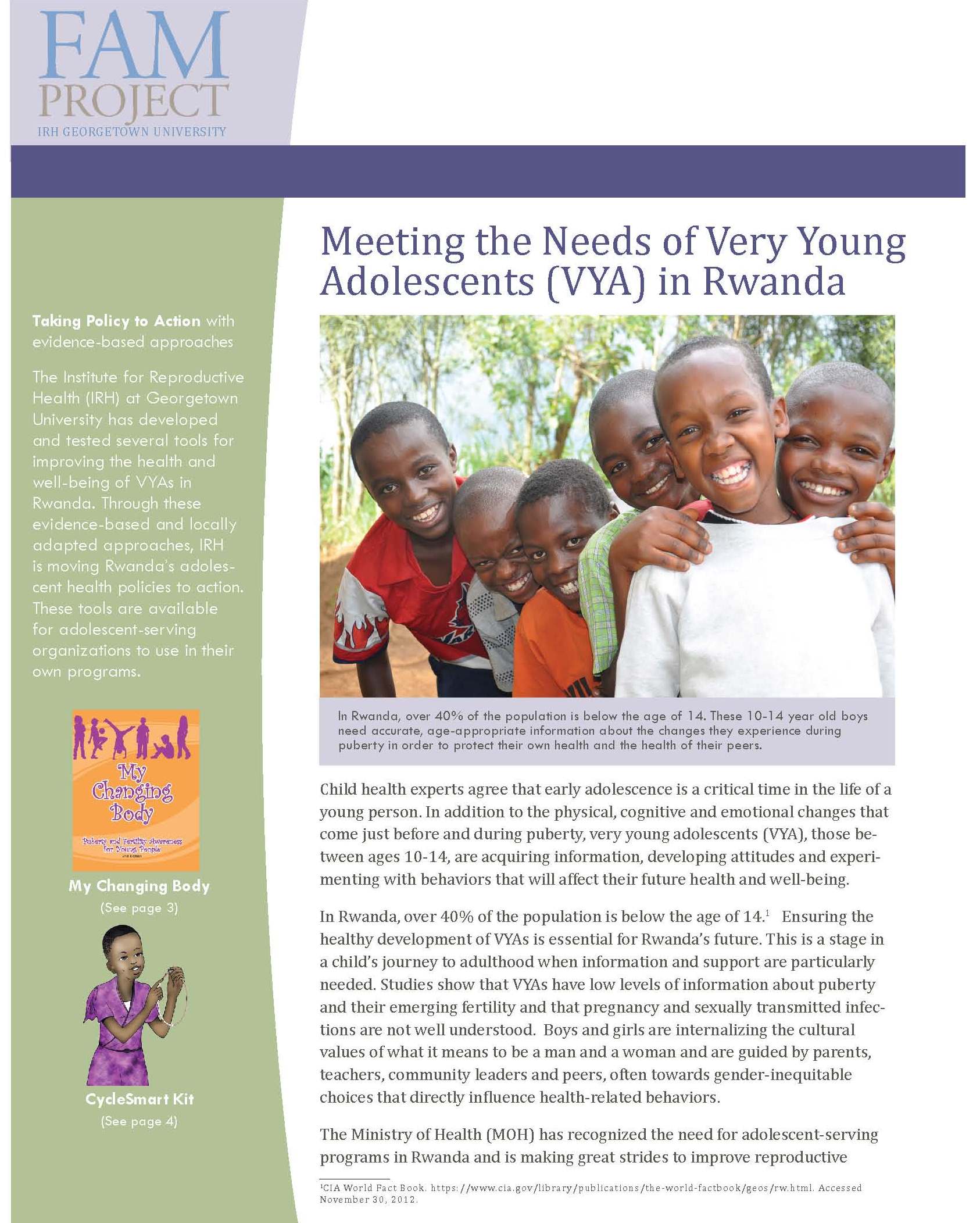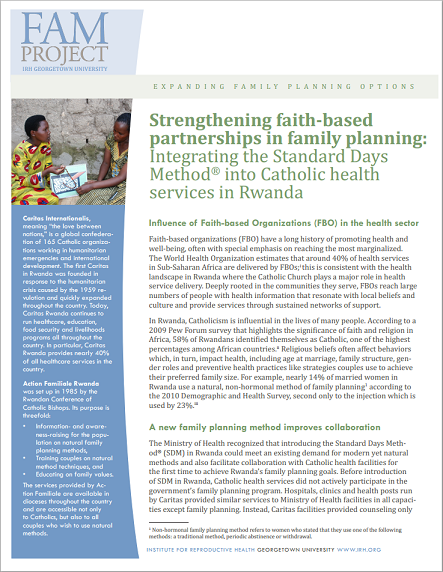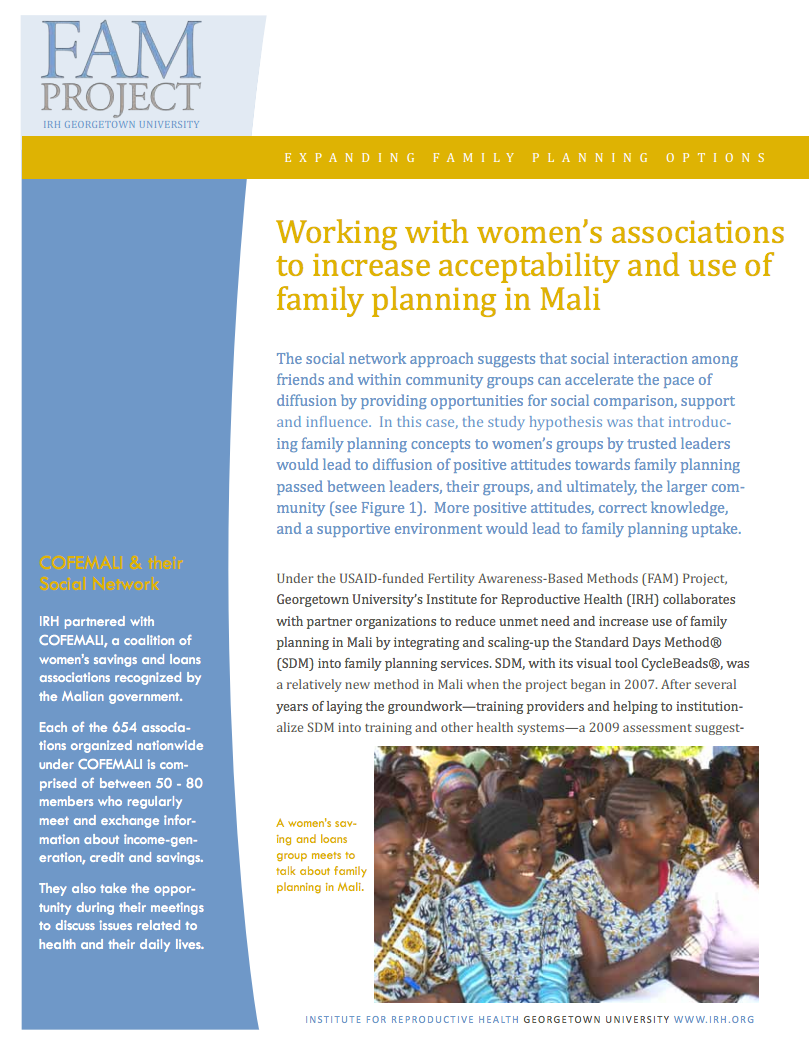Spotlight on the FAM Project Brief Series
To facilitate the scale-up process and communicate key findings to partners and stakeholders, IRH developed a series of project briefs that summarize key research results, address common misconceptions related to fertility awareness-based methods (FAM), and illustrate unique advantages of integrating FAM into programs.
This brief series is readily available through the IRH Resource Library, and many are also available in French and Spanish. You can also find them when you visit IRH’s exhibit during conferences and meetings.
The next time you are searching for answers about FAM, consider these briefs as key resources.
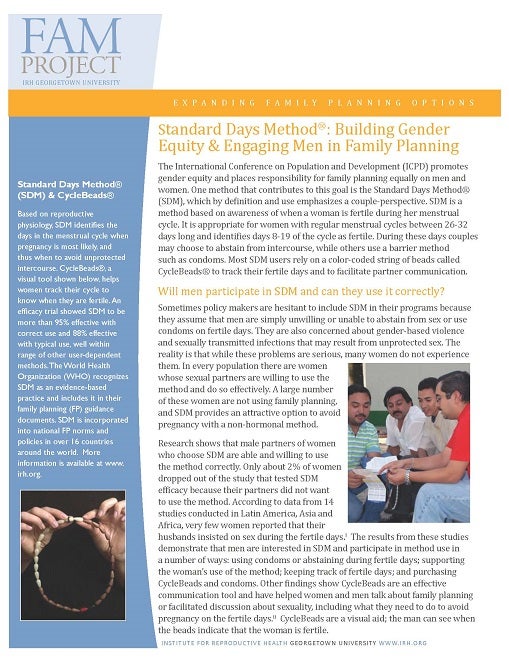 Standard Days Method®: Building Gender Equity & Engaging Men in Family Planning highlights the results of research in India and Guatemala that demonstrated improved ability for women to make decisions in their relationships and increased participation by men in family planning decisions.
Standard Days Method®: Building Gender Equity & Engaging Men in Family Planning highlights the results of research in India and Guatemala that demonstrated improved ability for women to make decisions in their relationships and increased participation by men in family planning decisions.
Doing it Right: Monitoring, Learning and Evaluating for Sustainable Scale-Up demonstrates the importance of not only designing an intervention that can be brought to scale but monitoring and evaluating (M&E) that process along the way. IRH is at the forefront of developing M&E approaches for the scale-up process.
The Standard Days Method®: A Modern Family Planning Method outlines existing evidence and qualifications that categorizes SDM as a Modern Method. This is important because it sets SDM apart from other natural methods that have not been systematically tested in a clinical trial.
Scaling up a family planning innovation: How health systems are strengthened along the way By examining the case of SDM, this brief captures how each building block of the WHO health systems strengthening model can be strengthened through the scale up process.
Partnerships with Faith-Based Organizations to Expand Access to Family Planning describes a diverse collection of partnerships between IRH and Christian and Muslim organizations seeking to improve the health of their communities through expanding access to family planning.
The Lactational Amenorrhea Method: (LAM) an important option for mothers and infants gives an overview of the scientific-basis and health benefits of LAM, and provides a summary of IRH’s current partnerships with local organizations to strengthen LAM services in India, Guatemala, and Mali.
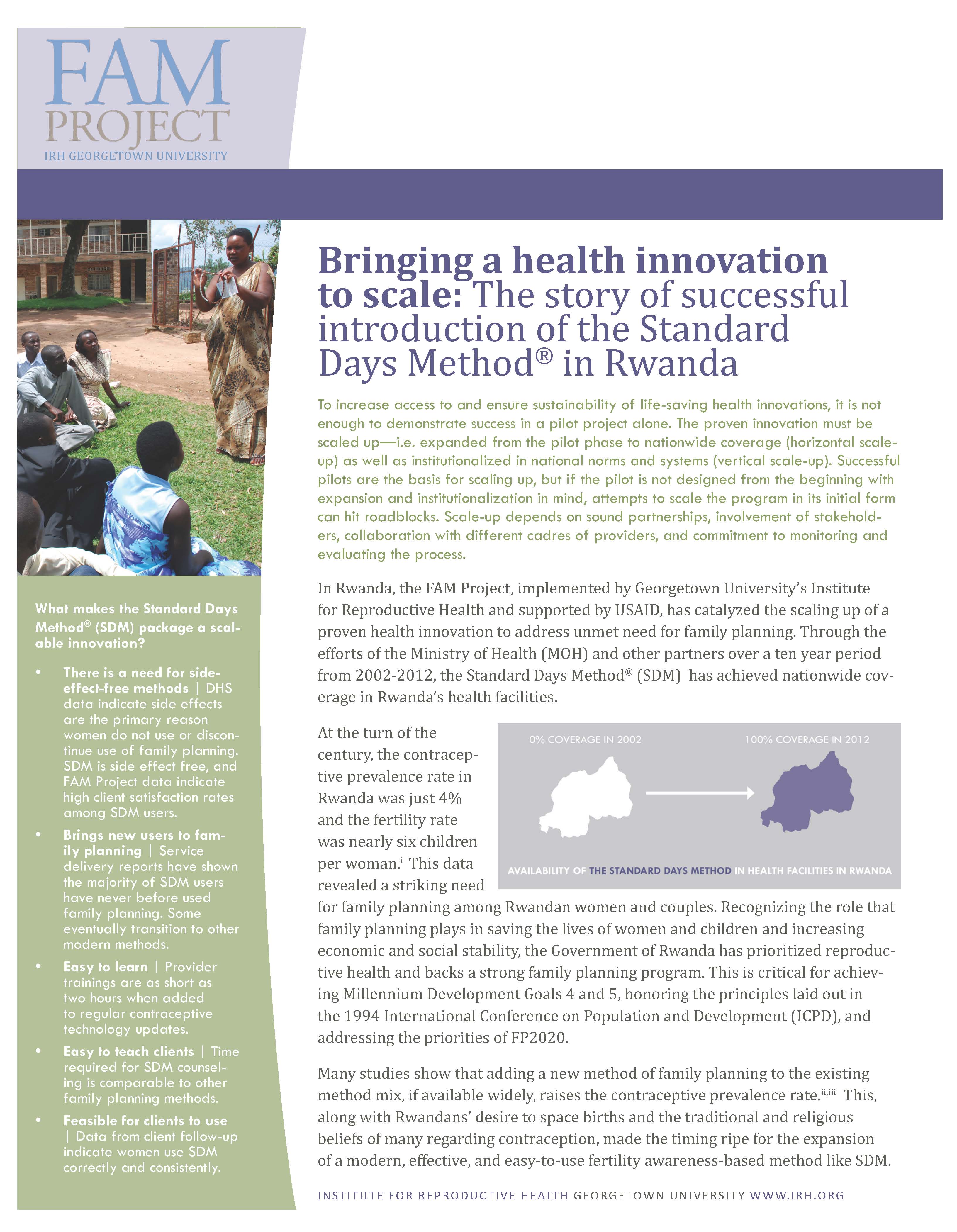 Bringing a health innovation to scale: The story of successful introduction of the Standard Days Method® in Rwanda shares a story of achievement, highlighting how SDM reached nationwide coverage in Rwanda’s health facilities through sound partnerships, involvement of stakeholders, collaboration with providers, and commitment to monitoring and evaluation.
Bringing a health innovation to scale: The story of successful introduction of the Standard Days Method® in Rwanda shares a story of achievement, highlighting how SDM reached nationwide coverage in Rwanda’s health facilities through sound partnerships, involvement of stakeholders, collaboration with providers, and commitment to monitoring and evaluation.
Meeting the Needs of Very Young Adolescents (VYA) in Rwanda gives an overview of tools developed and tested by IRH for improving the health and well-being of VYAs in Rwanda. The CycleSmart™ Kit and the My Changing Body curriculum are evidence-based and locally adapted approaches available for adolescent-serving organizations.
Strengthening faith-based partnerships in family planning: Integrating the Standard Days Method® into Catholic health services in Rwanda highlights the role that faith-based organizations have played in strengthening family planning service delivery in Rwanda, especially through integration of the Standard Days Method.
Working with women’s associations to increase acceptability and use of family planning in Mali outlines the approach, results, and lessons learned implementing a social network approach to the diffusion of family planning information.
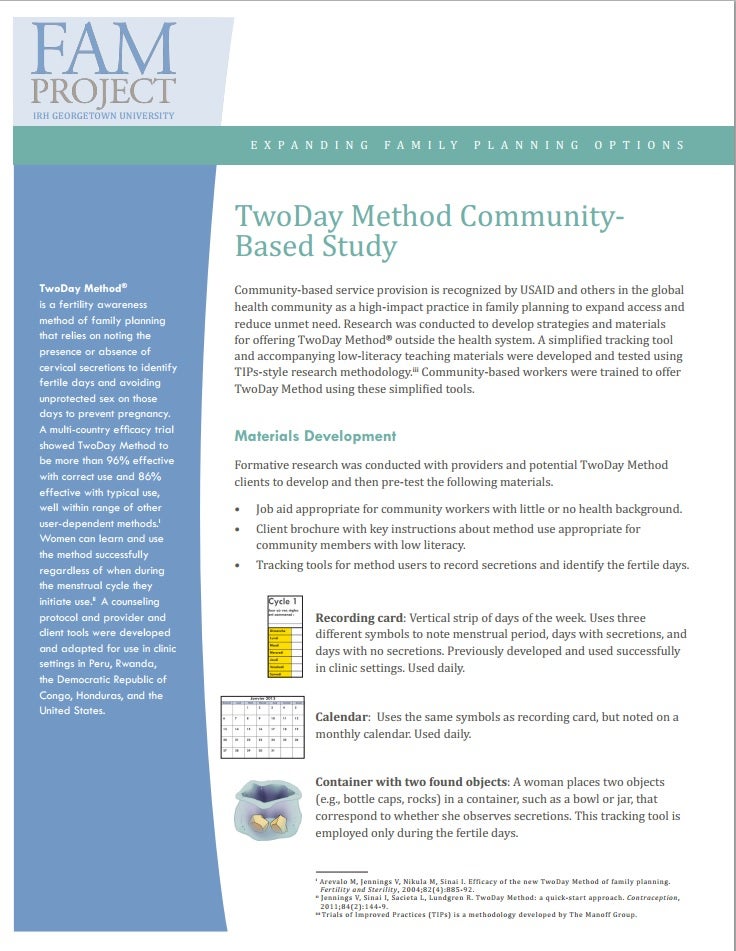 TwoDay Method® Community-Based Study overviews the research conducted to develop strategies and materials for offering the TwoDay Method outside the health system. Using TIPs-style research methodology, simplified tracking tools and low-literacy teaching materials for community-based workers were developed and tested in Guatemala and DRC.
TwoDay Method® Community-Based Study overviews the research conducted to develop strategies and materials for offering the TwoDay Method outside the health system. Using TIPs-style research methodology, simplified tracking tools and low-literacy teaching materials for community-based workers were developed and tested in Guatemala and DRC.
 Where We Work
Where We Work  Press Room
Press Room  FACT Project
FACT Project  Passages Project
Passages Project  Learning Collaborative
Learning Collaborative  Search All Resources
Search All Resources  Social Norms
Social Norms  Fertility Awareness Methods
Fertility Awareness Methods 